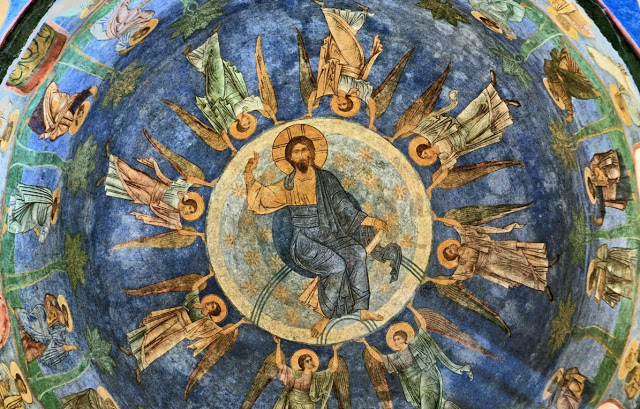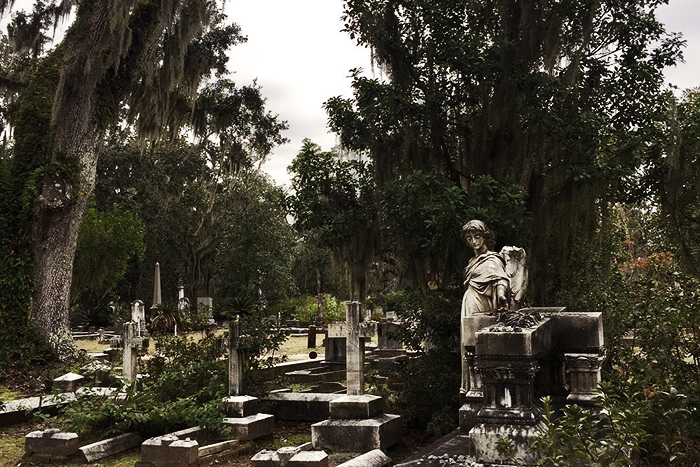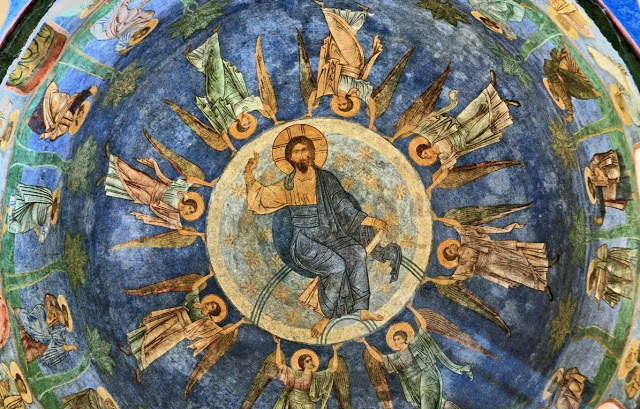
“And while they looked steadfastly toward heaven as He went up, behold, two men stood by them in white apparel, which also said: Ye men of Galilee, why stand ye gazing up into heaven?”
– Acts 1:10, 11
The “two men in white apparel,” who immediately after the ascension of the Lord appeared to the Apostles and asked them why they stood gazing up into heaven, were without doubt themselves inhabitants of heaven; therefore it is not to be supposed that this was displeasing to them, or that they desired to direct the gaze of those men of Galilee elsewhere. No. They desired only to put an end to the inert amazement of the Apostles when saying: Why stand ye gazing up into heaven? Having aroused them from their amazement, they draw them into meditation, and teach them and us with what thoughts we should gaze into heaven, following our Lord Jesus who hath ascended thither. This same Jesus, they added, which is taken up from you into heaven, shall come in like manner as you have seen Him go into heaven.
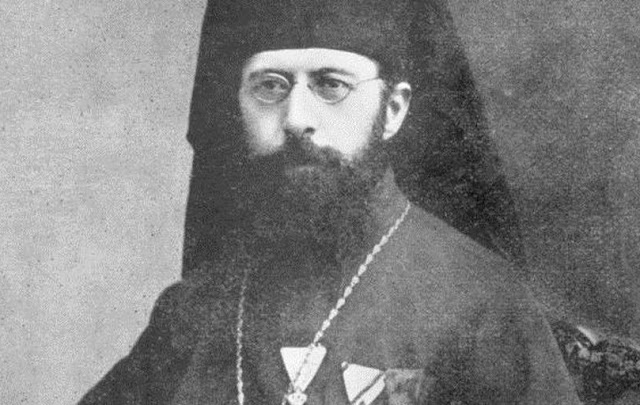 |
| Fr. Sebastian Dabovich |
The disciples of the Savior then beheld the exact fulfillment of His words which Mary Magdalene had recounted to them: I ascend unto my Father and your Father, and to my God and your God. They could not but conclude that those joyful visitations which He had bestowed upon them during the forty days after His resurrection from the dead, those instructive conversations with Him, that palpable communion between them and His divine humanity, were at that moment ended. When neither hand nor voice could any longer reach Him, they followed Him with their eyes, eager to detain Him; they looked steadfastly toward heaven as He went up. We can conceive what an immeasurable bereavement the Apostles must have felt after the ascension into heaven of Jesus, who was all and everything in the world to them; and it is this very bereavement for which the heavenly powers hasten to console them when telling them that this same Jesus shall come.
In considering the circumstances of the ascension of Christ into heaven, we may first note the blessing which He then gave to the Apostles, and it come to pass, says the Evangelist Luke, while He blessed them He was parted from them and carried up into heaven. What an endless current of the grace of Christ is thus revealed unto us, Christians! The Lord begins a blessing, and before its completion ascends into heaven; for while He blessed them He was carried up into heaven. Thus even after His ascension does He still continue invisibly to impart His blessing. It flows and descends continuously upon the Apostles; through them it is diffused upon those whom they bless in the name of Jesus Christ; those who have received the blessing of Christ through the Apostles spread it among others; and thus do all who belong to the Holy Catholic and Apostolic Church become partakers of the one blessing of Christ. As the dew of Hermon that descended upon the mountain of Zion, so does this blessing of peace descend upon every soul that riseth above passions and lusts, above vanity and the cares of the world; as an indelible seal does it stamp those who are of Christ in such a manner that at the end of the world He will by this very sign call them forth from the midst of all mankind, saying, Come ye blessed!
And now, my brethren, let us consider how needful it is for us to endeavor to gain now and to preserve this blessing of the Ascended Lord, which descends upon us also through the Apostolic Church. If we have received and preserved it, we shall, at the future advent of Jesus Christ, be called together with the Apostles and the saints to participate in His kingdom: Come ye blessed! But if, when He shall call the blessed of His Father, this blessing either be not found in us, or we be found in possession only of the false blessing of men who themselves have not inherited the blessing of the Heavenly Father by grace and in the sacraments, then what will become of us? Yea, I say, let us consider this vital point before the opportunity be taken away.
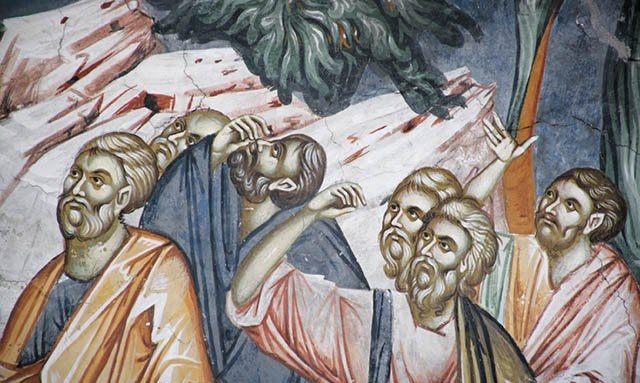
The day of the Lord cometh as a thief in the night. From this same unexpectedness of His second coming our Lord Himself draws for us Christians a saving warning: Watch, therefore, for ye know not what hour your Lord doth come. Do not be led away by curiosity or credulity, and beware of such ones who pretend to know more than Christ hath granted them to know. Let us endeavor rather to know what failings we have, to number our transgressions, and to seek a limit to them in repentance. Let us take heed lest the children of this world and our own passions lull our spirits into sleep, till the approach of that longed for, yet dreadful hour: When the Lord come.
The blessing of the Lord come upon you by His grace and love towards man, always, now, and ever and unto the ages of the ages.

